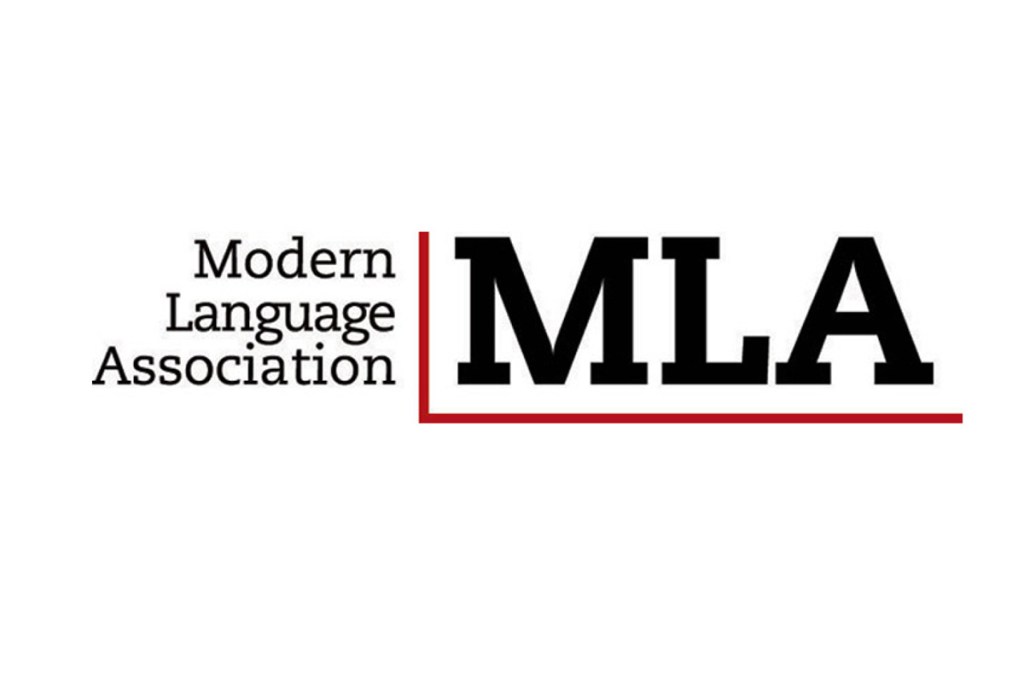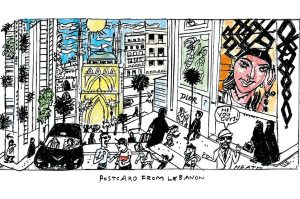In the Washington Post, Jacob Brogan writes about attending the annual Modern Language Association convention a few months ago. Normally, thousands of professors and newly minted PhDs would attend. Last year, it was virtual. This year it was both in-person and virtual. Hardly anyone came:
At 12:55 p.m. on a Thursday in early January, the double doors of Salon K at the Marriott Marquis in downtown Washington hung open like an unwanted hug. The space within had been optimistically set up for an audience of maybe three dozen: six rows of chairs in neat ranks with an aisle down the middle, facing a black-draped table with space for four participants.
The panel in progress — “Lessing and the Intersectionality of Gender and Cultural Diversity” — had another twenty minutes to go, just enough time for questions. But no hands were raised, and no one was holding forth. In fact, the room was free of any sign of life. The seats were empty, the table uncluttered by notes or napkins. Even the hotel corridor outside, lined with rooms hosting other sessions, was silent.
More:
For decades, the conference was the ground zero of professional life for literature scholars. Thousands descended on it to engage with the latest research and catch wind of the newest trends while listening to papers ranging from the abstruse (you’d be forgiven for not knowing who the eighteenth-century German writer Gotthold Ephraim Lessing is, let alone what intersects in his work) to the intriguingly sexy (among this year’s listings: “Romantic Panic,” “Bibliomancy”). It was here, too, that rising scholars would meet with acquisition editors from the various university presses, pitching them on books that could make them into stars — or at least earn them tenure.
Not this year. Brogan eventually was able to find a talk that was attended by around ten people, and one virtual talk had perhaps twenty people present. Otherwise, it was dead.
Brogan blames government cuts to humanities programs and our culture’s preoccupation with utility for humanities’ woes (the number of students majoring in English has been in steady decline for years) and, in turn, for the declining interest in the MLA. These are certainly contributing factors, but he fails to note the primary problem: the abandonment of the study of literature at the university, which at many schools has become a sub-discipline of politics. What was the title of that talk that no one attended? “Lessing and the Intersectionality of Gender and Cultural Diversity”? Yeah, I can’t believe students aren’t flocking to English departments to fork over $40,000 a year for stuff like this.
In other news
Lauren Hough was nominated for a Lambda Literary Prize for her essay collection Leaving Isn’t the Hardest Thing. That nomination was rescinded when she defended a friend, who was accused of transphobia by the plebs on Twitter for writing a book called The Men. In the book, people with Y chromosomes — that is, men — disappear mysteriously. But, of course, for transgender fanatics, who believe that people without Y chromosomes can also be men, the book’s title is an outrage. Isaac Butler, who has read the book, explains how silly this all is. Hough, who is a lesbian, defends herself here.
Laura Miller, who is usually level-headed about these things, says the lesson is: if you’re a writer, don’t get involved in literary spats on Twitter or anywhere online. She notes how this is not Hough’s first flame war. Of course, Miller is right, but that’s not the lesson here. Hough was defending a friend from a baseless accusation. The lesson is that transgender activists are fanatics. They should be politely ignored.
Top BuzzFeed editors resign: “Investors at BuzzFeed are reportedly pressuring CEO Jonah Peretti to close down its entire money-losing news operation as senior journalists announced their resignations on Tuesday. Mark Schoffs, the editor in chief of BuzzFeed News, and two of his top deputies quit in the latest sign of turmoil at the cash-strapped company.”
A seventeenth-century tapestry is restored after a stolen fragment was found: “Spanish authorities had all but given up the search for the missing piece, which was lost in a heist carried out by notorious art thief ‘Erik the Belgian’.”
I write about Ludwig Wittgenstein’s private war notebooks, which, surprisingly enough, have only now been published for the first time:
They begin with Wittgenstein’s first year of fighting in the war and end the year before he was captured in Italy; regrettably, three sets of notebooks have gone missing. Wittgenstein surprised his Cambridge friends when he enlisted in the Austrian army a day after the Austro-Hungarian Empire had declared war on Russia. He had a medical deferment because of a hernia but enlisted nonetheless — not as an officer, which would have been expected given his standing as a member of one of the wealthiest families of Vienna, but as an infantryman. He served first on a patrol ship on the Vistula River, then in an artillery workshop and finally on the front lines.
Alexander Larman writes about Evelyn Waugh in Hollywood:
In early 1947, he was forced to confront the modern world and do something out of keeping with his carefully constructed rural idyll. When Brideshead was published in the United States in 1946, it met with enormous commercial success after being picked as the prestigious Book of the Month Club selection in January. Waugh complained to his friend Maimie Lygon that “My book has been a great success in the United States which is upsetting because I thought it in good taste before and now I know it can’t be.” He was always affectionately scathing about Americans, remarking that “the great difference between our manners [and theirs] is that theirs are designed to promote cordiality, ours to protect privacy.” But his own privacy was about to be interrupted.
Robert Zaretsky reviews Michael Ignatieff’s On Consolation: Finding Solace in Dark Times. In it, “Ignatieff reflects on the consequences of the enduring disruption in the metaphysical supply chain that had connected countless generations to hope.”
Heavy metal bands love Roman emperors. Why?
Nero with 139 songs, followed by Caligula with 110, tops a sizable catalogue of 444 songs. Yet this data set consists only of mentions by name in songs with available lyrics in the Encyclopaedia Metallum and excludes untold numbers of tracks about emperors that do not name them, such as “Incitatus,” an old-school death metal ode to Caligula’s horse and would-be consul from 2019 by the Brazilian band Orthostat, or the American band Graves of Valor’s 2009 song “Locusta,” named after the woman Nero praises as the poisoner of not only his predecessor Claudius but also his stepbrother Britannicus and his mother Agrippina. The numbers speak for themselves: emperors are metal. But why?


















